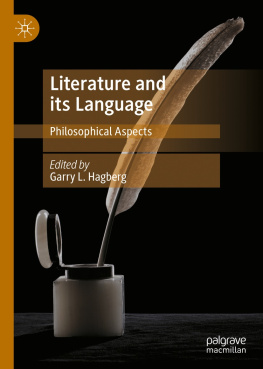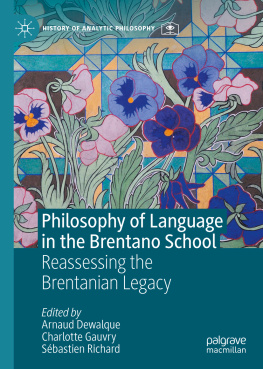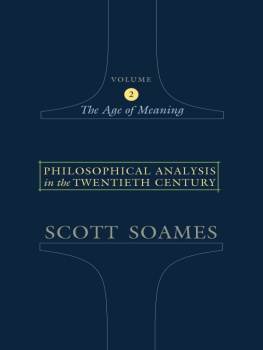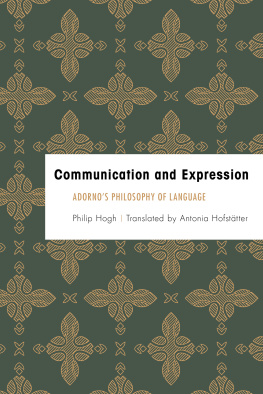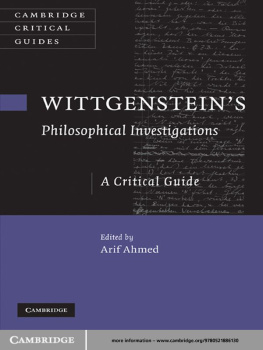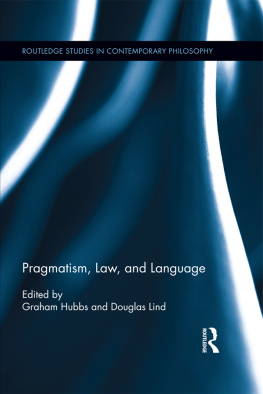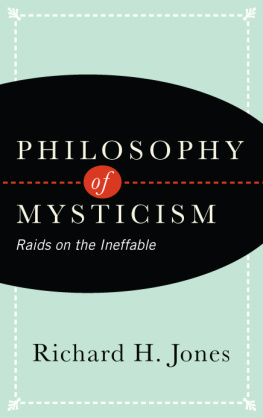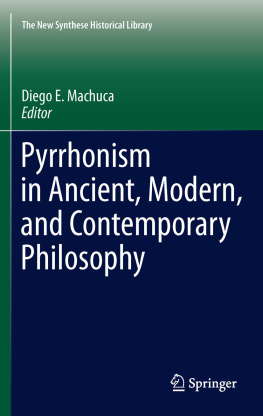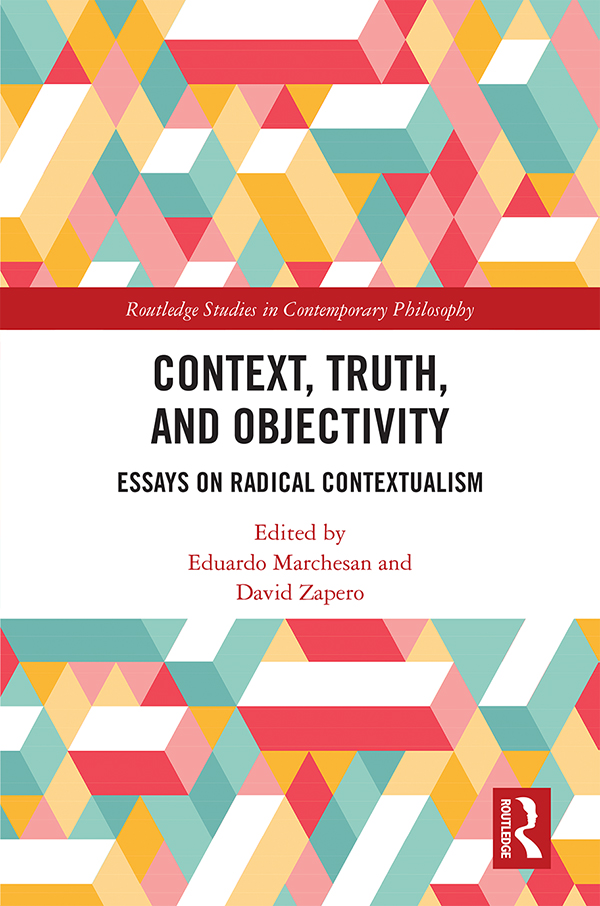
Context, Truth, and Objectivity
The claim according to which there is a categorial gap between meaning and saying between what sentences mean and what we say by using them on particular occasions has come to be widely regarded as being exclusively a claim in the philosophy of language. The present essay collection takes a different approach to the issues connected to this claim. It seeks to explore the ways in which that claim as defended first by ordinary language philosophy and, more recently, by various contextualist projects is grounded in considerations that transcend the philosophy of language. More specifically, the volume seeks to explore how that claim is inextricably linked to considerations about the nature of truth, knowledge and representation. It is thus part of the objective of this volume to rethink the current way of framing the debates on these issues. By framing the debate in terms of an opposition between ideal language theorists and their semanticist heirs on the one hand and communication theorists and their contextualist heirs on the other, one brackets important controversies and risks obscuring the undoubtedly very substantial disagreements that exist between different currents of thought.
Eduardo Marchesan is a Post-Doctoral Fellow at the Philosophy Department of the University of So Paulo.
David Zapero is a Research Fellow at the Philosophy Department of the University of Bonn.
First published 2019
by Routledge
711 Third Avenue, New York, NY 10017
and by Routledge
2 Park Square, Milton Park, Abingdon, Oxon OX14 4RN
Routledge is an imprint of the Taylor & Francis Group, an informa business
2019 Taylor Francis
The right of the editors to be identified as the authors of the editorial material, and of the authors for their individual chapters, has been asserted in accordance with sections 77 and 78 of the Copyright, Designs and Patents Act 1988.
All rights reserved. No part of this book may be reprinted or reproduced or utilised in any form or by any electronic, mechanical, or other means, now known or hereafter invented, including photocopying and recording, or in any information storage or retrieval system, without permission in writing from the publishers.
Trademark notice: Product or corporate names may be trademarks or registered trademarks, and are used only for identification and explanation without intent to infringe.
Library of Congress Cataloging-in-Publication Data
CIP data has been applied for.
ISBN: 978-1-138-09408-6 (hbk)
ISBN: 978-1-315-10625-0 (ebk)
Typeset in Sabon
by codeMantra
Avner Baz, Tufts University
Jocelyn Benoist, Universit Paris 1 Panthon-Sorbonne
Krista Lawlor, Stanford University
Eduardo Marchesan, Universidade de So Paulo
Sofia Miguens, Universidade do Porto
Franois Recanati, Institut Jean-Nicod, cole Normale Suprieure
Charles Travis, Kings College, University of London
Michael Williams, Johns Hopkins University
David Zapero, Universitt Bonn
David Zapero
In his 1969 inaugural lecture as Waynflete Professor at Oxford, Strawson presented a debate a Homeric struggle, he called it between two fundamentally different attitudes towards language and its formalization. On one side of this struggle he placed all those authors who grant the idea of communication and, more specifically, the idea of a communication-intention, a central role in the philosophical analysis of language. Affiliation to this side of the debate was conditional on an adherence to the following general thesis: the meaning of linguistic expressions is governed by rules and conventions the nature of which can only be adequately accounted for by drawing on the idea of a communication-intention. That is, according to the kind of philosophical attitude which the authors on this side of the struggle were meant to give expression to, the rules governing the meaning of linguistic expression cannot be understood independently of the use that speakers make of them for the purposes of communicating with one another.
The very simple thought [] which underlies [this] type of analysis is that these rules are, precisely, rules for communicating, rules by the observance of which the utterer may achieve his purpose, fulfil his communication-intention; and that this is their essential character.
Consequently, on such a conception of language, the prime function of language is to enable communication between members of a community.
It is natural to construe the case in favor of such an outlook as an argument in two stages. First one fleshes out an adequate notion of communication, then one shows that the rules governing meaning are, essentially, rules enabling communication. It is of course essential that the first step of the argumentation does not rely on the second; that is, that ones notion of communication does not rely on the rules which that very notion is meant to help elucidate. This means that the notion of communication cannot involve any reference to linguistic meaning: it must be a pre-linguistic notion. This does not entail ruling out the possibility that the rules of a language should enable the emergence of novel communication-intentions, unavailable to a speaker without the mastery of the relevant rules. Yet, if the nature of those rules is to be accounted for in terms of communication-intentions, the notion of communication that one works with must ultimately be explicable without making reference to those rules.
On the other side of the Homeric Struggle Strawson placed authors whom he called the theorists of formal semantics. The authors who belong on this side of the debate do not deny that language is a powerful tool of communication; they do not deny that the rules governing meaning can be and often are put to such a use. But they deny that the nature of these rules is explicable in those terms. They claim, instead, that the general character of the rules governing the meaning of linguistic expressions must be understood with reference to another notion, namely the notion of truth or, more specifically, the notion of a truth-condition. On this view, the rules that determine the meaning of sentences achieve their task by fixing the conditions under which those sentences are true. It is thus to the idea of a truth-condition that one must turn to understand the nature of those rules.
Naturally, the theorists of formal semantics acknowledge that sentences cannot be said to be true or false in isolation. Due to context-dependent elements in the sentence, different utterances of the same sentence will have different truth-values. But this fact does not in itself pose any fundamental problem for the theorist of formal semantics: it merely obliges him to suitably relativize his account of meaning to the contextual conditions of utterance. A theory of the rules of a language will not simply be a theory of conditions under which the declarative sentences of that language are true; it will, instead, be a theory of the different types of conditions under which a given sentence will issue in different particular truths. This way, the theorist of formal semantics acknowledges the existence of context-dependent linguistic expressions while keeping in place his central claim that the rules governing meaning have to be understood with reference to the notion of truth. On this modified version of his claim, the meaning of a sentence is determined by the rules that determine which statement would be made by someone uttering the sentence on a particular occasion; and which statement is made on an occasion is in turn explicated in terms of truth-conditions. The rules governing meaning thus continue to be accounted for in terms of the notion of truth: the meaning of an expression is construed as the contribution that that expression can make to a truth-evaluable content.
Next page

